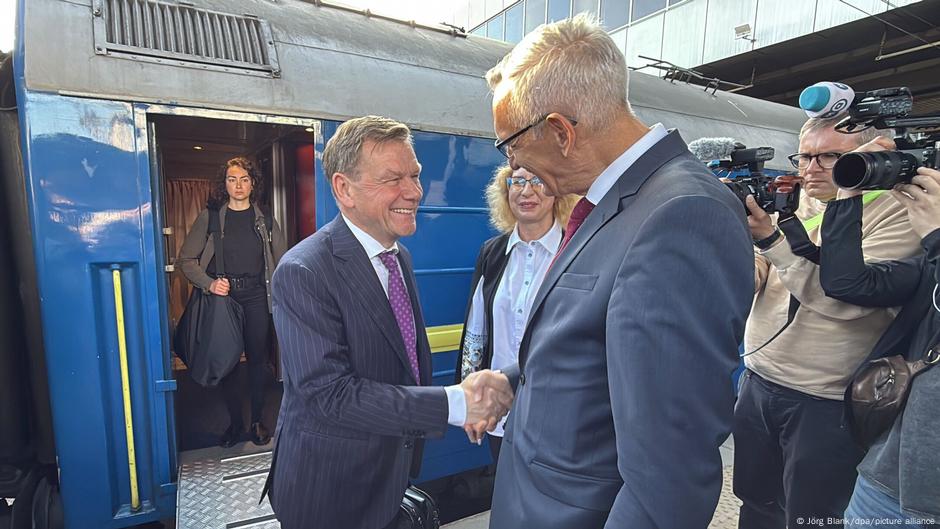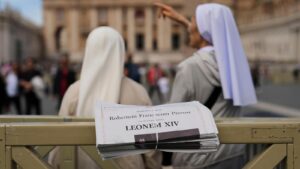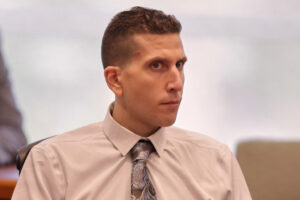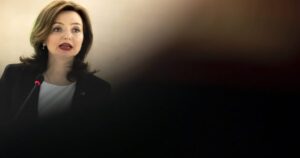
On an unannounced visit to Kyiv, German Foreign Minister Johann Wadephul declared Ukraine’s freedom as the “most important task” in Berlin’s foreign policy. This statement comes amidst ongoing Russian bombardments and military advances. Wadephul arrived in the Ukrainian capital on Monday morning, promising sustained support for Ukraine in its defense against the Russian invasion.
“We will continue to stand firmly by Ukraine’s side so that it can continue to defend itself successfully — with modern air defense and other weapons, with humanitarian and economic aid,” Wadephul stated upon his arrival in Kyiv. He further criticized Russian President Vladimir Putin for his unyielding demands, stating, “He doesn’t want negotiations; he wants a capitulation.”
The German Foreign Ministry released a statement quoting Wadephul: “Ukraine’s freedom and liberty is the most important task in our foreign and security policy.” His visit underscores Germany’s commitment to Ukraine as Russian forces intensify their military efforts.
Intensifying Russian Military Actions
Wadephul’s visit to Kyiv follows a period of escalated Russian military activity. On Saturday night, the Ukrainian Air Force faced what it described as the “most massive airstrike” since the start of the full-scale invasion in February 2022. The attack involved 477 drones and 60 missiles, of which 475 were intercepted.
Ukrainian President Volodymyr Zelenskyy reported that over the past week, Russia launched more than 114 missiles, 1,270 drones, and nearly 1,100 glide bombs across Ukraine. Wadephul highlighted the broader implications of the conflict, stating, “Ukraine will determine whether Europe remains a place where freedom and human dignity prevail — or becomes a continent where violence redraws borders.”
Germany’s Strategic Support
Germany is the second-largest military aid provider to Ukraine, following the United States. However, Berlin has refrained from supplying its long-range Taurus missiles due to concerns about escalating the conflict. Instead, Chancellor Friedrich Merz pledged to assist Ukraine in developing its own long-range missile capabilities, offering a degree of independence from Western constraints.
The German Foreign Minister is scheduled to meet with Ukrainian Foreign Minister Andrii Sybiha and pay respects at the Babyn Yar massacre site, where Nazi forces killed over 33,000 Jews in 1941. Discussions between German business leaders and Ukrainian officials are also planned, aiming to strengthen economic ties amid the ongoing conflict.
International Reactions and Future Prospects
Meanwhile, Russian forces have reportedly captured the village of Dachnoye in Ukraine’s eastern Dnipropetrovsk region. Russian Foreign Minister Sergei Lavrov commented on NATO’s defense spending commitments, suggesting they could lead to the alliance’s collapse. Lavrov’s remarks followed those of Polish Foreign Minister Radoslaw Sikorski, who speculated that an arms race might trigger the fall of President Putin.
On the economic front, President Putin announced plans to reduce Russia’s military expenditure next year. Currently, Russia spends about 6.3% of its GDP on defense, the highest level since the Cold War. This accounts for roughly 32% of the federal budget for 2025.
As the conflict continues, Germany’s role in supporting Ukraine remains pivotal. Wadephul’s visit and statements reinforce Berlin’s commitment to Ukraine’s sovereignty and the broader European security landscape. The international community watches closely as diplomatic and military strategies evolve in response to the ongoing crisis.






